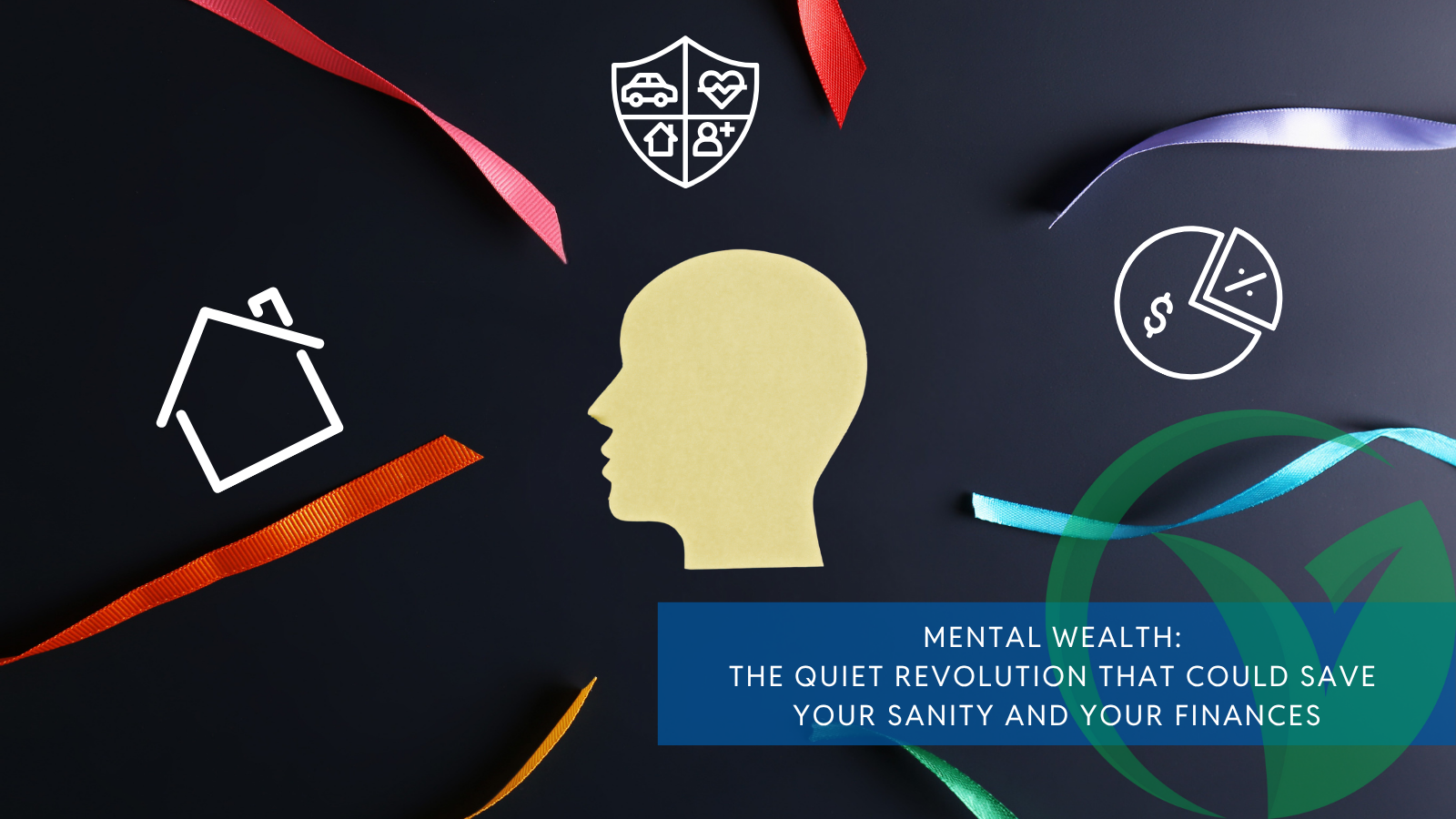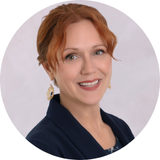
There’s a moment I see over and over again. Someone walks into a conversation about money maybe it’s a planning session, a quick Q&A, or even just opening up their bank app and you can feel the shift. Shoulders tense. Eyes flicker. Jokes surface, trying to lighten what suddenly feels heavy.
Not because they don’t want to talk about it. But because deep down, they’re carrying way more than we can see.
We’ve been trained to treat money as a math problem. But for most people, money is an emotional pressure point. It’s where uncertainty, shame, past decisions, future fears, caregiving, identity, and exhaustion all swirl together.
And in that moment? Most people don’t need a better budget. They need relief. They need clarity. They need someone to help make space for their thoughts to breathe again.
This isn’t a how-to guide. It’s a reorientation. One that asks: what if clarity isn’t found in more effort, but in more space? What if the problem isn’t your plan but the pressure beneath it?

Kate Sussman
Financial Advisor
Vita Financial
Mental Wealth Isn’t a Luxury. It’s a Lifeline
The term “mental wealth” isn’t just a clever phrase; it’s a reframing of what we really need to build. Not just more assets or income streams. But bandwidth. Capacity. The ability to think clearly and make confident decisions without spinning out.
Not everyone feeling the strain is in financial crisis. In fact, many of the most organized, capable, and successful people we work with still carry a weight that isn’t visible on paper. Their accounts are in order. But their mental space is maxed out.
Mental wealth is the state of having enough cognitive and emotional space to face your finances without fear, fog, or shutdown.
According to the American Psychological Association (2023), money is the leading cause of stress in the United States, outranking work, health, and relationships. Financial stress is not just discomfort, it’s linked to anxiety, sleep disruption, relationship strain, depression, and long-term cognitive impairment.
And the longer it lingers, the more it depletes the very mental faculties required to solve it.
This is why people who “know what to do” still don’t do it. They’re not being irresponsible, they’re overloaded. And when the system keeps asking you to “just do one more thing,” eventually something breaks.
Usually, it’s us.
System Overload: Why Good People Freeze
Newer research reinforces what many people already feel but may not know how to name: financial stress directly impacts cognitive function and decision-making.
• A 2025 survey by Talker Research found that 70% of Americans experience financial anxiety, and 76% feel isolated in trying to manage it.
• A 2024 study published in the Journal of Experimental Social Psychology found that financial stress measurably impairs executive functioning—specifically inhibitory control, which is critical for sound decision-making.
• A 2024 Bankrate survey reported that 47% of adults say money negatively affects their mental health, with symptoms like anxiety, avoidance, and sleep disruption.
• The Money and Mental Health Policy Institute notes that individuals with mental health challenges are three times more likely to be in problem debt.
This isn’t about laziness. It’s behavioral neuroscience.
Under sustained stress, our brains prioritize short-term relief. We ignore unopened mail. We default to spending habits that numb. We avoid conversations that might expose our confusion or our fear.
This is the nervous system doing its job: protecting us from perceived threat.
But without tools to interrupt the cycle, we stay stuck floating between panic and paralysis.
Your Money Is Personal So Your Plan Should Be Too
I’ve sat across from people at every income level—from six-figure earners who feel lost, to single parents holding everything together with tape and tenacity. What they all have in common is this: they don’t need someone to fix them. They need someone to help unravel the noise.
Let’s be clear: no financial plan works if the person it’s for is in emotional shutdown. That’s why the most effective tools aren’t always calculators: they are conversation, context, and compassion.
When people feel safe, calm, and grounded, they can look at their options without getting overwhelmed. This stability helps them make choices based on what they truly want instead of fear. Their actions then come from a place of self-trust rather than self-blame. Feeling secure and balanced also gives them the strength to face challenges with confidence, encouraging personal growth and positive changes. In the end, this inner peace and clarity help people live honestly and reach their full potential.
This is where mental health and financial planning must come together, not as separate disciplines, but as integrated support systems for real people with real lives.
The Cost of Carrying It Alone
For high-functioning adults, this mental load often stays hidden. They’re dependable, decisive, and on top of the details—until they aren’t. The moment of burnout or bandwidth loss doesn’t come from chaos. It comes from accumulation.
So many people think they’re the only one struggling. Especially high-responsibility adults such as those managing kids, aging parents, business pressures, health changes, or grief. They don’t see themselves as “in crisis.” But their bandwidth is gone. They keep pushing, planning, “being fine” until something breaks: a bill goes unpaid, a financial opportunity slips by, or a health scare forces decisions that should’ve been made years ago.
They weren’t careless. They were unsupported. And in my work, I’ve seen what happens when that support finally shows up.
The shift is immediate.
The shoulders drop.
The clarity returns.
The person stops spinning and starts choosing.
That’s not about fixing their finances overnight. It’s about restoring mental wealth, the space to think clearly, act wisely, and feel like yourself again.
Frameworks That Actually Help (and Don’t Add to the Noise)
Mental wealth doesn’t come from doing more. It comes from doing less but doing it clearly. Here are
a few of the tools that consistently help people regain focus:
Decision Triage: Act now, delay, or delegate. Prioritize effectively. When making decisions, it’s
crucial to categorize them into ones that need immediate action, can be postponed, or should be
delegated to others. This method ensures that you are focusing on what truly requires your
attention and allows you to manage your time and resources more efficiently.
Income Buckets: Track where money comes from and goes. Create clear categories for all sources
of income and expenses. By organizing finances into specific buckets, you gain better insight into
how you earn and spend your money, making it easier to identify areas for improvement and ensure
you’re meeting your financial goals.
90-Day Action Cycles: Focus on short-term wins for momentum. Set goals and plans in 90-day
increments to create a sense of urgency and maintain momentum. Breaking down larger objectives
into these shorter cycles helps in accomplishing tasks more efficiently and keeps motivation high
through continuous progress.
Relational Support: Seek guidance from a therapist, advisor, or peer to navigate complexity.
Building a network of supportive individuals can help when facing challenging situations. Whether
it’s professional advice or emotional support, having someone to consult can provide valuable
perspectives and aid in making well-informed decisions.
These aren’t hacks. They’re anchors. And they’re designed to help people move from “I can’t even
look at it” to “I know my next step.”
These tools only work when they’re rooted in context. Mental wealth doesn’t come from knowing
what to do, it comes from feeling safe enough to actually do it.
This Isn’t About Discipline. It’s About Being Human.
If you’ve been avoiding your finances, or silently worrying that you’re “behind,” please hear me
clearly:
You have been handling many tasks on your own for an extended period of time.
Mental wealth is not a destination.
It’s not a number on a spreadsheet.
It’s the quiet strength that comes from being able to make financial choices with a calm mind, a
clear lens, and a nervous system that finally feels safe.
You deserve that. Not someday. Now.
So, if you’ve been staring at the numbers and feeling stuck, pause. Breathe. You’re not behind. You’re
at the beginning of something better.
A Clear Next Step
If anything in this piece resonated, if you’ve felt stretched thin, avoided your finances, or wondered
why you’re stuck—it’s time to make space for a different kind of conversation.
You don’t need to have it all figured out. You don’t need a perfect budget or a spreadsheet of goals.
You need clarity. You need someone to help you slow the spin and find your next step.
That’s what we do.
We work with people across all stages of life and complexity—from business owners and
professionals to caregivers and families in transition. What they all have in common isn’t a certain
portfolio. It’s the desire to stop carrying it all alone.
If you’re ready to feel more grounded, clearer, and more confident about your money we’re here.
Citations & References
1. American Psychological Association. Stress in America™ 2023: A Nation Recovering. [https://www.apa.org]
2. Bankrate. (2024). Money and Mental Health Statistics. [https://www.bankrate.com]
3. Money and Mental Health Policy Institute. The Facts: Money and Mental Health. [https://www.moneyandmentalhealth.org]
4. CFPB. (2022). Making Ends Meet Survey Report. [https://www.consumerfinance.gov]
5. Talker Research/Doctor On Demand (2025). [https://nypost.com]
6. Hughes & Tomiyama (2024). Journal of Experimental Social Psychology [https://bpb-us-e1.wpmucdn.com

